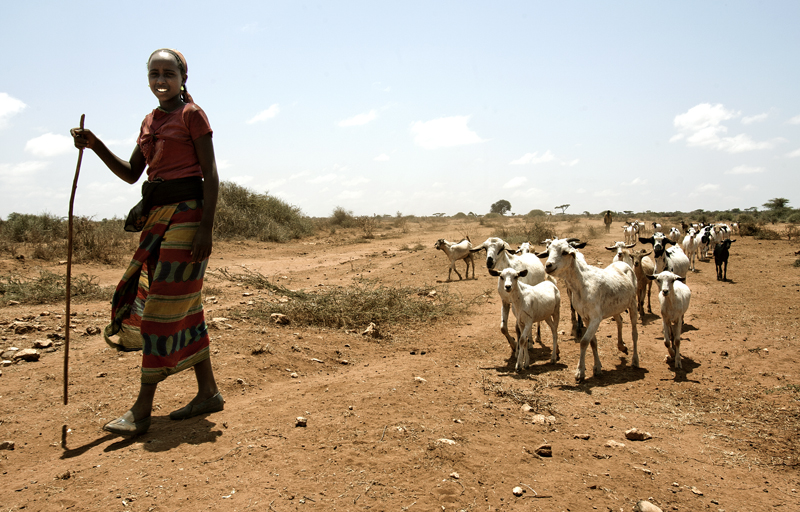The impact of climate change and degradation is not felt evenly.
Environmental degradation is a cruel phenomenon. It has the harshest effect on people who already suffer a great deal: the world’s poor. Especially the rural poor. While most common images of poverty depict something urban, poverty is mostly rural. Among those who live in poverty around the world, 85% live in a rural village. This means that they probably grow their own food and farm for an income and that means they need a healthy environment to survive.
The effects of climate change make this harder and harder. Deforestation creates soil infertility. Mass extinction reflects a state of crisis for the environment across the globe. People are being robbed of their way to make a living.
Over the course of my lifetime, we’ve actually made a big dent in the fight against poverty. In 1981, about 42% of the world lived in poverty. Today, that number hovers just above 10%. Most of it persists in rural areas. Poverty isn’t an invincible opponent, but it’s hard to imagine making strides against its final frontier without addressing the environment.
On our latest podcast episode, we’ll be leaning into the urgency of the issue.

Guests at Good Samaritan Hospital in Atlanta
From Kenya to Oaxaca to Atlanta.
In Episode 2 of GrassRoots, we get to talk to Dr. Paul Robinson. Dr. Robinson grew up in the Democratic Republic of Congo and spent decades of his life studying a unique pastorial tribe living on the frontiers of Kenya and Ethiopia.
He explains how the Gabra herders occupied one of the harshest and most difficult places in the world to survive. But they figured out how to do it by mastering the art of counting and predicting the rain. With precision, they knew where to move their herds so that all could be fed.
Their way of living, however, is one that is being lost as climate change makes an impact on East Africa. What will happen to them now? Dr. Robinson shares with Philippe and Christi what he’s heard from the Gabra elders over the course of years.
We also hear from Luis, Plant With Purpose’s Country Director in Mexico. He explained how a problem like not being able to grow enough food is one of the biggest drivers of immigration.
This episode also features Breanna Lathrop and Veronica Squires, who co-wrote the book How Neighborhoods Make Us Sick. Their book explains why our ZIP Codes determine our life expectancy more than our genetic code does.
While Breanna and Veronica are more urban based, as medical practitioners based in Atlanta’s Good Samaritan Hospital, their background helps us see how environmental factors increase vulnerability.

Paul Robinson of The Congo Initiative
It’s an urgent matter.
If there’s one big takeaway from this episode, it’s this: environmental issues truly are an urgent matter. For the rural poor, it’s not just a matter of how bad the environment might be by 2040. The environment is already unhealthy. And that affects whether or not there will be enough food for dinner.
Between Dr. Robinson’s mastery of the art of oral storytelling and Veronica and Breanna’s passion for seeing a healthier planet and healthier neighborhoods around Atlanta, We’ve assembled a uniquely appropriate group to help reveal the urgency of the challenge ahead of us.
GrassRoots is available for download on iTunes, Spotify, and Stitcher. New episodes release biweekly.

















